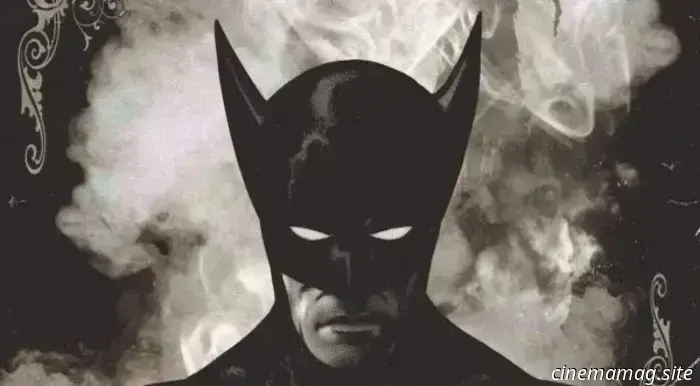-Movie-Review.jpg)
Hamnet (2025) - Film Review
Hamnet, 2025.
Directed by Chloe Zhao.
Featuring Jessie Buckley, Paul Mescal, Emily Watson, and Joe Alwyn.
SYNOPSIS:
A narrative of love and loss that led to the creation of Shakespeare’s enduring work, Hamlet.
Chloé Zhao’s adaptation of Maggie O’Farrell’s novel, Hamnet, comes with impressive credentials: a lauded source material, the support of Steven Spielberg and Universal Pictures, and a cast fronted by young Oscar-nominated talents Paul Mescal and Jessie Buckley. On paper, it seems to have all the hallmarks of a prestigious film. However, in reality, the film exhibits frustrating craftsmanship and lacks emotional depth.
Zhao portrays her Elizabethan setting on a grand scale, yet it feels devoid of warmth. Stratford is shown as a bleak, joyless environment, a place that never resembles a true home. The lighting is predominantly natural and overcast, with sunlight only appearing fleetingly when William Shakespeare (Mescal) is either writing or momentarily engaging with his children. Though the production design is impressive in size, it is intentionally minimal, primarily showcasing earth tones with minimal set decorations. The few scenes that infuse light and life—a charming meet-cute, a striking birthing moment, and the Globe Theatre stage—are sparsely scattered throughout its meandering two-hour duration. In summary, the film tends to be rather dull.
A moment of vibrancy emerges during a fragment of Hamlet performed for an astonished audience, where the actor portraying Hamlet (Noah Jupe in a standout performance) reaches out from the stage as if the audience were part of the earth itself. Curiously, the earth seems to respond.
However, this beautiful scene is undermined by a well-known musical cue: Max Richter’s “On the Nature of Daylight,” which was previously used effectively in the Academy Award-winning film Arrival, not long ago, along with many other projects. Its inclusion highlights a significant flaw in the film—a dependence on obvious, borrowed emotional triggers rather than genuinely establishing its own. Consequently, the film often instructs viewers on how to feel rather than allowing authentic emotions to arise naturally.
Mescal, known for portraying somber young men (in Normal People and Aftersun), assumes the role of Shakespeare as a distant, passionate, and tormented individual. This interpretation, while less mythic and more human, still lacks the essence of a fully realized character. Buckley, both fiery and ethereal, dominates the screen as Agnes, given several poignant scenes that feel like Oscar material. In her earlier performances (I’m Thinking of Ending Things, The Lost Daughter), Buckley thrived in roles that allowed her to do more with less, but this film unfortunately does not afford her that opportunity.
Despite sharing precious few scenes together, the duo's relationship is portrayed in broad strokes: a whirlwind of physical desire, the mythic portrayal of childbirth, followed by extended, silent separations as he departs for London while she grieves alone. Agnes is referenced as “witchy” within their village, yet the film hesitates to fully embrace the magical realism that could have added a more engaging and vibrant texture to the story.
Throughout, Zhao’s direction leans toward symbolism while her writing adopts a literal approach. Dialogue often explicitly states feelings that could be conveyed through performances and visuals alone. The screenplay, co-written by Zhao and O’Farrell, seems overly cautious and predetermined, prioritizing clarity over vibrancy. A poignant image of water pouring underneath the door as Agnes's waters break coincides with her mother-in-law stating she cannot leave due to the storm. The filmmakers appear to worry that viewers may overlook the symbolism in Hamnet or misunderstand its message. It reflects a current trend.
Despite its ambitious technical aspects and production quality, Hamnet seldom breathes. It feels engineered more for admiration than genuine experience: a period piece assembled from somber tones, dim visuals, and clear aspirations for awards. The excellence of Shakespeare’s writing is in its ability to make universal themes feel vivid and immediate. This film, too often, comes off as insecure, explicating its themes without fully allowing its love to resonate with audiences.
Flickering Myth Rating – Film: ★ ★ / Movie: ★ ★
Will Hume
-Movie-Review.jpg)
-Movie-Review.jpg)
-Movie-Review.jpg)
-Movie-Review.jpg)
Other articles
 The Bat-Man: Second Knight #1 - Comic Book Teaser
DC Comics will be releasing The Bat-Man: Second Knight #1 this Wednesday, and you can check out a sneak peek of the issue below with the official preview... The year is 1940. Much of the Western world is caught up in a conflict against a fascist regime whose advance across Europe appears unstoppable. With [...]
The Bat-Man: Second Knight #1 - Comic Book Teaser
DC Comics will be releasing The Bat-Man: Second Knight #1 this Wednesday, and you can check out a sneak peek of the issue below with the official preview... The year is 1940. Much of the Western world is caught up in a conflict against a fascist regime whose advance across Europe appears unstoppable. With [...]
 AI in Filmmaking: How New Technologies Are Transforming Cinema
Investigate the ways in which AI is revolutionizing filmmaking, including the creation of AI-generated movie posters and trailers, as well as advanced editing tools. Discover how AI enhances the creative process for filmmakers while preserving their unique vision.
AI in Filmmaking: How New Technologies Are Transforming Cinema
Investigate the ways in which AI is revolutionizing filmmaking, including the creation of AI-generated movie posters and trailers, as well as advanced editing tools. Discover how AI enhances the creative process for filmmakers while preserving their unique vision.
-Movie-Review.jpg) The Summer Book (2025) - Film Review
The Summer Book, 2025. Directed by Charlie McDowell. Featuring Glenn Close, Anders Danielsen Lie, Ingvar E. Sigurðsson, Pekka Strang, Sophia Heikkilä, Emily Matthews, and Theo Zilliacus. SYNOPSIS: Chronicles the uplifting story of a young girl and her grandmother who spend a summer on a tiny, uninhabited island in the Gulf of Finland. Relocating to a Finnish [...]
The Summer Book (2025) - Film Review
The Summer Book, 2025. Directed by Charlie McDowell. Featuring Glenn Close, Anders Danielsen Lie, Ingvar E. Sigurðsson, Pekka Strang, Sophia Heikkilä, Emily Matthews, and Theo Zilliacus. SYNOPSIS: Chronicles the uplifting story of a young girl and her grandmother who spend a summer on a tiny, uninhabited island in the Gulf of Finland. Relocating to a Finnish [...]
 TIFF Review: Barrio Triste is Among the Year's Most Impressive Debuts
At just two years old, Harmony Korine’s "post-cinema" company EDGLRD is already expanding its reach. Following his direction of AGGRO DR1FT and Baby Invasion, Korine is stepping into a producer role for Barrio Triste, the first feature film by Colombian-American artist Stillz. This collaboration is well-suited, considering Stillz’s experience as a music video director for artists such as Bad.
TIFF Review: Barrio Triste is Among the Year's Most Impressive Debuts
At just two years old, Harmony Korine’s "post-cinema" company EDGLRD is already expanding its reach. Following his direction of AGGRO DR1FT and Baby Invasion, Korine is stepping into a producer role for Barrio Triste, the first feature film by Colombian-American artist Stillz. This collaboration is well-suited, considering Stillz’s experience as a music video director for artists such as Bad.
 TIFF Review: Easy's Waltz Presents Nic Pizzolatto with a Strange, Awkward New Hollywood Imitation
My friend Nick Newman, who serves as the Film Stage Managing Editor, often uses the phrase “counterfeit money” to refer to certain films. Whether it’s The Batman or any of Ben Affleck’s works, this term effectively captures several titles that pretend to be genuine adult filmmaking while sidestepping the stylistic flair or ethical dilemmas that characterize true artistry.
TIFF Review: Easy's Waltz Presents Nic Pizzolatto with a Strange, Awkward New Hollywood Imitation
My friend Nick Newman, who serves as the Film Stage Managing Editor, often uses the phrase “counterfeit money” to refer to certain films. Whether it’s The Batman or any of Ben Affleck’s works, this term effectively captures several titles that pretend to be genuine adult filmmaking while sidestepping the stylistic flair or ethical dilemmas that characterize true artistry.
 Teaser for the action thriller The Shepherd Code: Road Back
Before its UK theatrical debut this Friday, M and M Film Productions has released a trailer for the action crime thriller The Shepherd Code: Road Back. Directed by Alan Delabie and Michael Morris, the film features Don “The Dragon” Wilson (Batman Forever), Michael McKell (Allied), Mark Strange (Kung Fu Games), and Shaina West (Killers […]
Teaser for the action thriller The Shepherd Code: Road Back
Before its UK theatrical debut this Friday, M and M Film Productions has released a trailer for the action crime thriller The Shepherd Code: Road Back. Directed by Alan Delabie and Michael Morris, the film features Don “The Dragon” Wilson (Batman Forever), Michael McKell (Allied), Mark Strange (Kung Fu Games), and Shaina West (Killers […]
Hamnet (2025) - Film Review
Hamnet, 2025. Directed by Chloé Zhao. Featuring Jessie Buckley, Paul Mescal, Emily Watson, and Joe Alwyn. SYNOPSIS: A tale of love and grief that served as the inspiration for Shakespeare's enduring work, Hamlet. Chloé Zhao's adaptation of Maggie O’Farrell’s 2020 novel Hamnet comes with impressive credentials: a renowned source material, the support of Steven Spielberg, and […]
